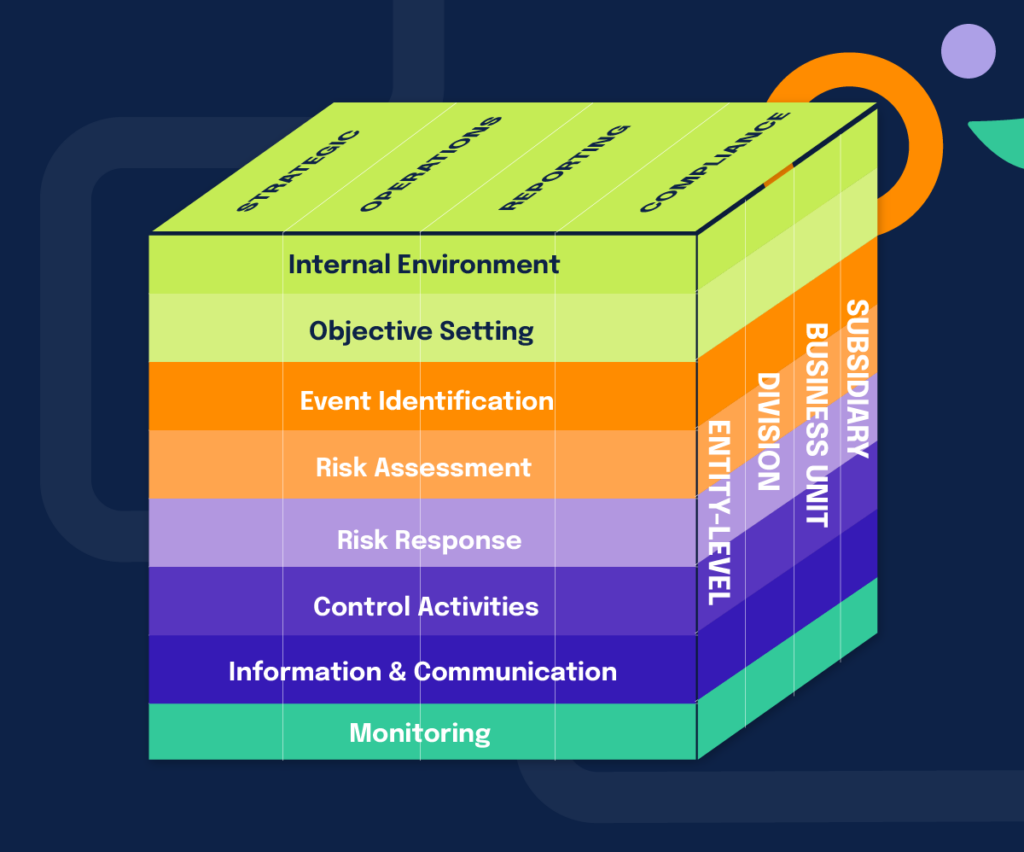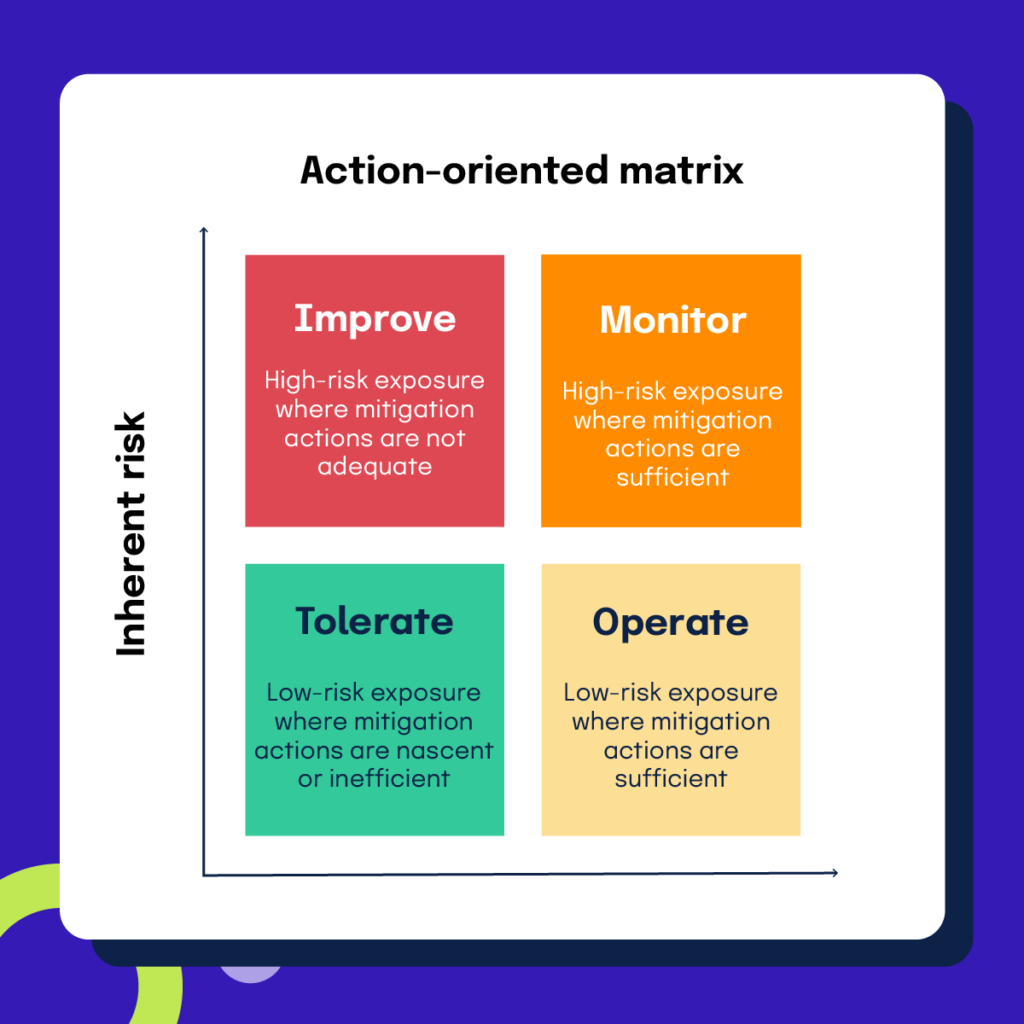Insider threats emphasize a structured framework for safety practices
Check out the Duty of AI in Promoting Ethics and Stability to Fight Expert Threats Effectively
The combination of AI in business frameworks has ended up being crucial in dealing with expert hazards. By employing sophisticated analytics and real-time tracking, AI systems can recognize discrepancies from moral behavior among workers (Insider threats). This positive strategy not just boosts conformity yet additionally fosters an environment of count on. As business significantly rely upon these modern technologies, questions arise about their effectiveness and potential implications for workplace society. What exists in advance in the advancement of AI's duty in advertising honesty?
Recognizing Expert Dangers and Their Influence On Organizations
Although companies often concentrate on exterior hazards, expert dangers position a considerable danger that can undermine safety and honesty. These dangers emerge from people within the company, such as professionals or employees, that might misuse their accessibility to delicate information for individual gain or malicious intent. The impact of insider threats can be extreme, causing economic losses, reputational damage, and lawful ramifications.
Variables contributing to insider threats include discontentment with the office, absence of oversight, and insufficient employee training on security procedures. Organizations typically struggle to recognize these risks, as they can be difficult to identify up until substantial damage has actually taken place. Prevention strategies have to concentrate on promoting a society of count on and responsibility, together with implementing durable monitoring and reporting systems. By acknowledging and addressing the intricacies of expert risks, companies can enhance their safety posture and secure their valuable assets from interior threats.
The Evolution of AI in Office Safety And Security
As companies increasingly challenge varied security difficulties, the assimilation of expert system (AI) in workplace protection has progressed substantially. AI applications focused largely on automating standard safety and security procedures, such as accessibility control and security. Nonetheless, improvements in artificial intelligence and information analytics have actually changed AI into a positive device efficient in identifying possible hazards and susceptabilities in real-time.
Organizations currently take advantage of AI-driven systems to assess large amounts of data, enabling them to find strange habits that may indicate expert threats. This development has actually brought about the growth of sophisticated algorithms that can discover from historical events, boosting the system's predictive abilities. On top of that, AI tools are progressively utilized to enhance case reaction procedures, allowing security teams to act quickly and effectively.
Just How AI Monitors Worker Habits for Ethical Compliance
Artificial intelligence plays a vital duty in checking staff member habits to ensure moral compliance within companies. AI systems examine substantial quantities of information produced by workers, consisting of communications, transactions, and accessibility to delicate details. By using sophisticated algorithms, these systems can recognize deviations from established ethical criteria and company policies.
Equipment discovering models continually adjust to recognize patterns of habits that may indicate ethical violations, such as unauthorized information accessibility or uncommon purchase tasks. Insider threats. Additionally, AI-driven devices can supply real-time alerts to monitoring, helping with timely interventions when possible dangers are spotted
The assimilation of AI right into compliance monitoring not only boosts the organization's capability to promote integrity but likewise promotes a society of accountability among employees. By advertising transparency, AI systems serve as a deterrent versus unethical habits, making sure that employees continue to be lined up with organizational worths and ethical standards.
Analyzing Patterns: Determining Risky Habits With AI
An expanding variety of companies are leveraging AI to assess patterns that might suggest dangerous behavior among employees. By utilizing innovative formulas, these systems can filter through vast amounts of information, identifying anomalies in customer behavior that can recommend potential insider dangers. AI can discover unusual access patterns to sensitive info, such as staff members accessing files outside their normal extent of work or during atypical hours. Additionally, behavioral analytics can highlight frequent modifications in a staff member's interaction design or collaboration practices, which might indicate underlying concerns. This proactive approach enables companies to determine danger variables prior to they escalate right into significant dangers. As a result, the integration of AI right into checking methods not just improves security however likewise fosters a society of accountability and moral actions. By recognizing these patterns, companies can better recognize the behavioral dynamics within their workforce, inevitably advertising a much safer and more ethical workplace.
Real-Time Insights: Immediate Reactions to Prospective Threats
Real-time understandings via anticipating analytics and automated alert systems play a necessary role in dealing with potential dangers to values and stability. By leveraging these modern technologies, organizations can prepare for dangerous actions and respond quickly to reduce dangers. This proactive approach boosts accountability and cultivates a society of honesty in different settings.
Predictive Analytics Applications

Automated Alert Solutions
Predictive analytics provides a foundation for organizations to boost their responsiveness to honest worries through automated alert systems. These systems utilize real-time information to keep track of tasks, identifying abnormalities that may signify prospective insider risks. By leveraging artificial intelligence algorithms, automated notifies can identify patterns of actions that drift from established standards, enabling quick intervention. This immediacy is crucial in mitigating threats connected with unethical methods. Automated alert systems can simplify interaction amongst appropriate stakeholders, ensuring that prospective hazards are attended to quickly and successfully. As companies progressively depend on AI-driven options, the assimilation of automated sharp systems will play an essential function in cultivating a culture of ethics and honesty, inevitably guarding business properties.
Promoting a Culture of Trust Via AI-Driven Openness
AI-driven transparency can substantially improve depend on within organizations by advertising responsibility and open communication. Through real-time monitoring services, stakeholders can acquire understandings into processes and decision-making, promoting a culture of integrity. Data-driven decision-making additionally supports this openness, enabling notified selections that straighten with ethical standards.
Enhancing Openness and Responsibility
How can organizations efficiently cultivate a culture of depend on? By boosting transparency and accountability with the strategic use expert system. AI can help organizations methodically track decision-making processes, making certain that activities line up with well-known ethical criteria. This openness enables employees to see the reasoning behind plans and choices, reducing obscurity and cultivating a sense of fairness. Additionally, AI-driven tools can facilitate clear communication concerning responsibilities and expectations, empowering people to take possession of their actions. As accountability ends up being deep-rooted in the organizational society, staff members are more probable to involve in honest behavior, knowing their actions are kept track of and evaluated. Inevitably, this method cultivates an environment where trust can prosper, substantially minimizing the danger of insider threats.
Real-Time Tracking Solutions
As organizations increasingly look for to promote a society of trust, real-time monitoring remedies emerge as a crucial device in improving openness. These AI-driven systems continually track activities, giving insights into user habits and possible anomalies that might indicate expert risks. By executing such surveillance services, companies can proactively identify threats, guaranteeing punctual responses to questionable tasks. This not only safeguards delicate information however additionally strengthens a commitment to moral methods. Furthermore, the clear nature of real-time tracking helps construct worker self-confidence, as people are aware that their actions are being observed for the better good. Inevitably, these options offer to grow a workplace environment based in trust, responsibility, and moral stability, crucial for reducing insider hazards efficiently.

Data-Driven Choice Making
Real-time surveillance remedies lay the foundation for data-driven decision production, which greatly enhances organizational transparency. By leveraging AI innovations, companies can examine substantial amounts of data to determine abnormalities and patterns a measure of potential insider dangers. This logical technique makes it possible for stakeholders to make informed decisions based in empirical proof, cultivating a culture of count on among employees. Transparency in decision-making processes, bolstered by AI-driven understandings, motivates accountability and moral habits. In addition, it permits companies to proactively address vulnerabilities, guaranteeing that activities taken are warranted and interacted plainly. Therefore, the application of data-driven methods not only mitigates risks connected with insider threats however additionally enhances the values of stability and honest conduct within the organizational structure.
Future Fads: The Function of AI in Enhancing Work Environment Ethics
While organizations significantly transform to synthetic intelligence for operational efficiency, the capacity of AI to improve work environment principles is acquiring importance. Future trends suggest that AI will browse around here play an important duty in establishing moral structures and internet standards, allowing organizations to navigate complicated ethical problems. By analyzing huge amounts of data, AI can identify patterns of underhanded actions and give insights that promote openness and responsibility.
Additionally, AI-driven tools can assist in real-time surveillance of staff member interactions, ensuring adherence to ethical requirements. This proactive strategy not just minimizes expert risks however additionally grows a culture of stability. As companies embrace AI modern technologies, they must additionally prioritize honest programs and mathematical bias reduction to guarantee fairness.
In this developing landscape, the combination of AI in ethical techniques stands for a transformative change, cultivating a setting where honesty is not just expected yet methodically reinforced.
Often Asked Questions
Exactly How Does AI Differentiate Between Benign and Malicious Actions?
AI sets apart in between destructive and benign activities by evaluating patterns in user actions, using artificial intelligence formulas to identify abnormalities, and reviewing contextual information to identify whether actions line up with established standards or show possible threats.
Can AI Equipment Replace Human Being Judgment in Moral Decision-Making?
AI tools can not totally change human judgment in honest decision-making. While they can examine data and identify patterns, the nuanced understanding of context, worths, and moral implications still calls for human insight and discernment.
What Are the Personal Privacy Effects of AI Checking Employee Actions?

Just How Can Organizations Guarantee AI Algorithms Are Morally Designed?
Organizations can ensure AI formulas are fairly made by applying transparent growth procedures, entailing diverse stakeholders, carrying out routine audits, and adhering to recognized moral structures that focus on fairness, responsibility, and regard for customer privacy and legal rights.
What Training Is Required for Team to Comprehend Ai's Honest Function?
Team training should incorporate foundational AI values, data personal privacy, and bias awareness. Workshops, study, and interactive sessions can boost understanding, guaranteeing workers recognize AI's honest effects and its duty in cultivating stability within the organization.
Man-made knowledge plays a crucial function in checking worker behavior to assure ethical compliance within companies. The integration of AI right into monitoring techniques not just enhances safety yet additionally fosters a culture of liability and ethical actions. While companies progressively face honest predicaments and potential integrity violations, anticipating analytics applications use prompt understandings that can assist reduce these threats. Anticipating analytics provides a structure for companies to boost their responsiveness to ethical worries via automated sharp systems. Future trends show that AI will certainly play a crucial role in establishing ethical structures and guidelines, allowing companies to navigate complex ethical predicaments.